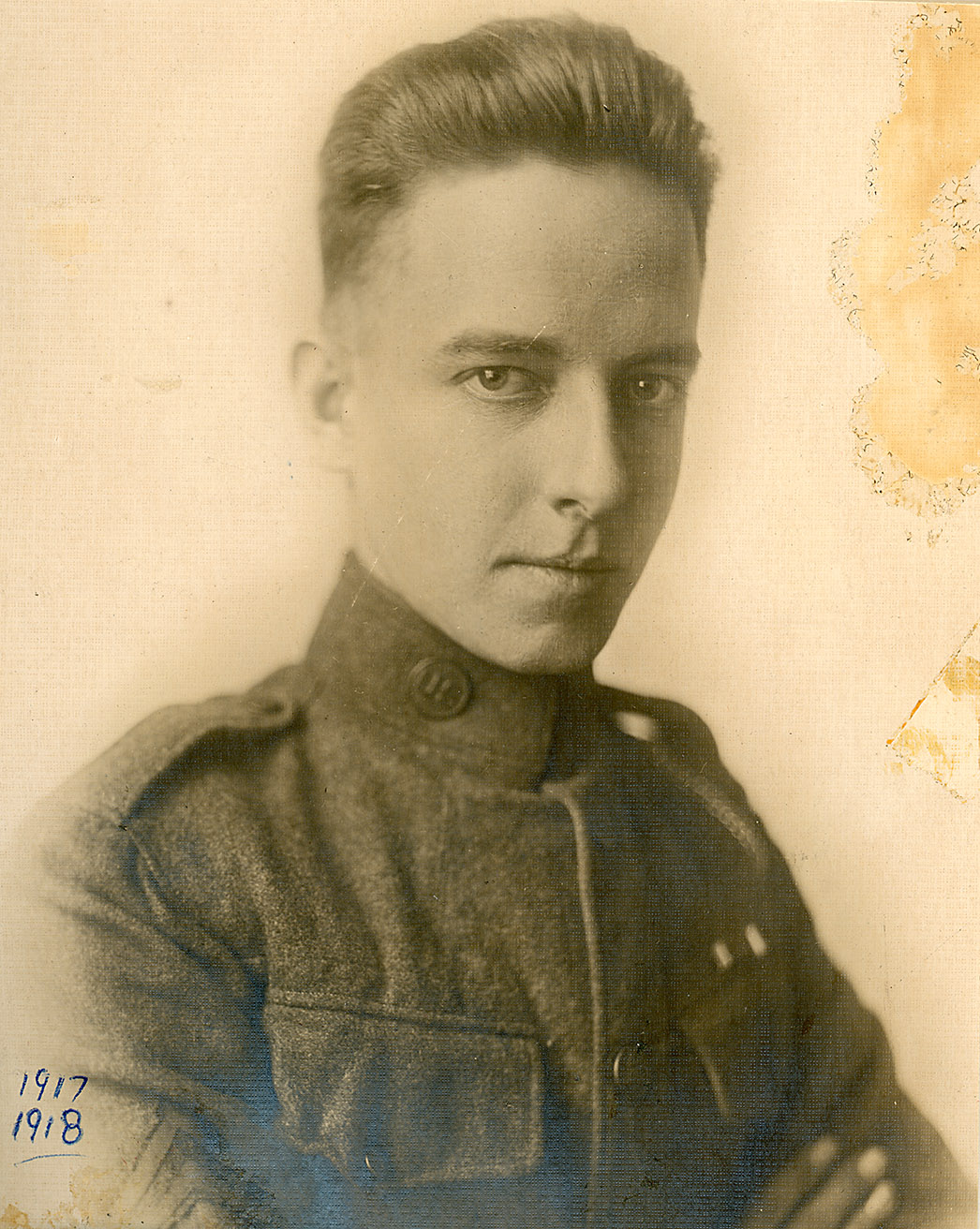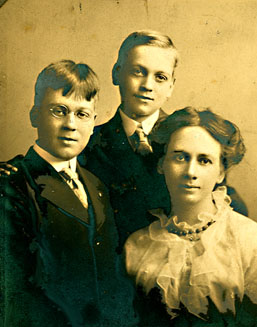Roswell A. Calin Collection

Shortly before his twentieth birthday in 1918, Roswell “Ross” Calin joined the 44th Coast Artillery Corps and was sent overseas for service. Arriving in France in August 1918, Calin took part in the St. Mihiel offensive and was wounded in action. He returned to his home in Providence, R.I., early in 1919 and was active in veterans’ organizations for years, including serving as Rhode Island State Adjutant of the Disabled American Veterans in the mid-1920s.
The Calin collection consists of two scrapbook “volumes,” now disbound, assembled by Ross Calin to document his experience in the First World War. Labeled a “memoir,” the volumes consist primarily of photographs and postcards (including many real photo postcards) depicting American troops in the field, war damage, and sites visited by Calin in France. Also included are a selection of medals received by Calin, including a Victory Medal with St. Mihiel clasp, and some newspaper clippings, primarily from the post-war years.


